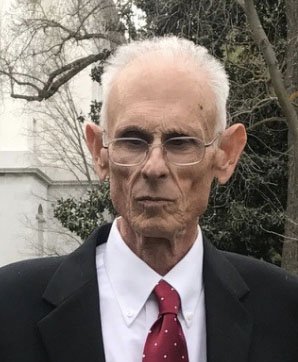By John Reitman
June 18

When it comes to defending Southern California’s golf industry, no one carries a bigger stick than Craig Kessler.
A former attorney, Kessler has spent the past 11 years as the director of government affairs for the Southern California Golf Association and before that he was the executive director of the Public Links Golf Association of Southern California. That background adds up to many years of experience working on labor issues and public affairs, including nearly a quarter century of government relations and advocacy on behalf of golf. A skilled player who loves the game, Kessler is especially passionate about defending the merits of municipal golf.
Passion for the game is one thing, helping save it from politicians and those who view golf courses as apartment complexes in waiting is another. It takes a special kind of person not just to go into battle every day to protect the game you love, but to have the necessary tools and the skills to wield them is another matter entirely.
“Some people are like a fish out of water. They’re not comfortable in that realm,” Kessler said. “I’m comfortable in that role as a strategist and all the skills that go into advocacy.
“Years ago, if you would have told me that I would be working in the golf industry, I would have laughed you out of the room.”
The SCGA and PLGA merged in 2010. At that time, SCGA executive director Kevin Heaney stayed on in his position and Kessler, who already had considerable experience working with the media and elected officials, took over the role of director of government affairs. Today, he advocates on behalf of the SCGA’s 160,000 members and golfers throughout California.
“What people don’t see is what he does behind the scenes,” said Jim Ferrin, a former superintendent in Roseville, who worked closely with Kessler on California Alliance for Golf issues. “His work is essential to the California golf industry, and he is one of the best at what he does.”
Kessler’s background includes experience as a USGA committeeman, chairman of the Los Angeles Golf Advisory Commission, member of the Ventura Golf Advisory Group, member of the Los Angeles County Junior Golf Foundation Board of Directors and the First Tee of Los Angeles advisory committee.
Through the years, he has worked closely and regularly with the Los Angeles Department of Water and Power, one of the country’s largest utility providers, on establishing water use
When California was in the throes of one of the worst droughts in the state’s history, which eventually resulted in state-mandated water-use restrictions, golf courses around the state came under heavy fire. No other place in California has a love-hate relationship with golf quite like the Coachella Valley. With about 120 golf courses, the Coachella Valley relies on golf for its very economic livelihood, if not its very existence. But not all residents see it that way.
The most challenging things I have worked on have been attacks on the very legitimacy of municipal golf. In the state’s highly populated urban areas, land is precious. Cities are park-poor, and the interests competing for land are incredible. There is a serious housing shortage here, and many people have nowhere to go, so when people drive past a golf course in an area where there is a need for affordable housing they see a solution.
The golf courses of the valley were squarely in the crosshairs of the local media and residents, And those golf courses were painted as water use abusers by many of the nearly 400,000 people who chose to live in a desert.
Kessler played a key role in working with the Coachella Valley Water District, members of the local golf community and others to form the Coachella Valley Golf and Water Task Force that developed smart water use protocols for golf courses and established the cash for grass rebate program that paid golf properties for converting irrigated turf into non-irrigated.
Mike Huck, a Southern California-based irrigation consultant as well as a former superintendent and USGA Green Section agronomist, was part of that group that helped found the task force in the Coachella Valley.
“Craig is the clearinghouse of everything in California on how to work with these water districts and how to develop plans for your golf course,” Huck said.
“I don’t know if there is another association doing what the SCGA has going on with government affairs.”
For all of his accomplishments, Kessler has a special affinity for protecting municipal golf. Taking up for public golf also has been among some of his most challenging work. He has been a vocal detractor of AB 672, proposed legislation in California that targets municipal golf courses as potential sites for low-income housing units and open space. The bill died in committee in April, but probably will be introduced again in 2022, Kessler said.
“The most challenging things I have worked on have been attacks on the very legitimacy of municipal golf,” Kessler said. “In the state’s highly populated urban areas, land is precious. Cities are park-poor, and the interests competing for land are incredible. There is a serious housing shortage here, and many people have nowhere to go, so when people drive past a golf course in an area where there is a need for affordable housing they see a solution.
“If you ask people in this business how they got started, most would say they started in municipal golf. Now, it has reversed course. Even if a golf course is successful, people don’t care about that million dollars. They want another use for that land, and golf isn’t it.”
Those challenges of advocating for public golf have done little to dampen Kessler’s enthusiasm for helping to save the game he loves.
“When it comes to government affairs, Craig Kessler wields a pretty big sword,” Ferrin said. “So, when he talks, people better damn well listen.”

